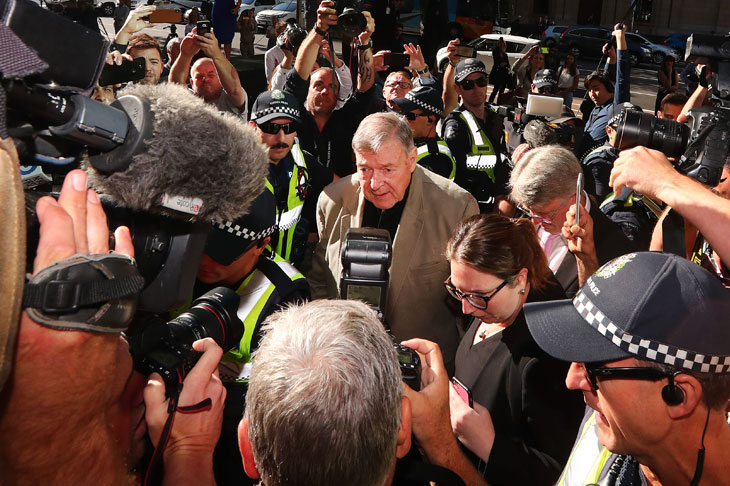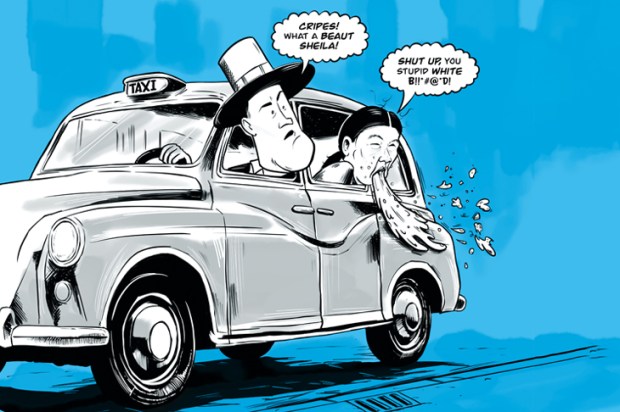In his famous Letter from Birmingham Jail, Martin Luther King wrote: ‘justice too long delayed is justice denied.’ This has proved painfully true in the case of Cardinal George Pell. The truism ‘better late than never’ is scant comfort for a man who has spent thirteen months in jail for a crime he did not commit. Here is a man who was convicted of decades-old criminal offences on the sole word of a single accuser who never gave live testimony to the jury. Instead, in a ruling that proved patently prejudicial, the presiding judge permitted the Crown to construct its case upon video-taped testimony from a previous prosecution that ended in a mistrial. Victoria’s Evidence (Miscellaneous Provisions) Act also prevented any mention of the fact that the accuser in this case had a demonstrable history of serious psychological problems. Not only were Pell’s lawyers denied access to relevant medical records, but they were prohibited from even raising questions of mental competency in open court. The tenets of fundamental fairness were similarly elusive during Pell’s initial appeal to the Victorian Supreme Court. There, a two-justice majority confirmed Pell’s guilty verdict, giving short shrift to the 20 witnesses who gave exculpatory evidence under oath that was never challenged by prosecutors at trial.
The paucity of evidence beyond the uncorroborated assertions of a single accuser raises serious questions how this case even made it on to the docket of the Victorian County Court in the first place. For answers, we should look to the persona of Cardinal Pell, long a polarising figure in the Catholic Church, beloved by some for his unapologetic conservatism, while detested by others for precisely that same reason. But the civil liberties issues at stake in the Pell prosecution far transcend the cardinal’s personal popularity, or lack thereof. We should all be thankful that the High Court ignored the passions of a public poisoned by years of slanted media coverage.
The jury at Cardinal Pell’s initial trial recognised the common-sense implausibility of the Crown’s case and deadlocked its way into a mistrial. And yet the Victorian Director of Public Prosecutions decided to take a second bite at the apple by refiling those same criminal charges.This decision is rendered all the more incomprehensible in light of the fact that prosecutors were originally disinclined to proceed with the case. In fact, the Pell brief bounced back and forth three times between the DPP and police like a blistering hot potato. So what made the second jury willing to go unanimously where the first jury dared not tread? The only substantive difference between trial one and trial two was the scorched earth campaign of personal vilification that dominated media coverage of George Pell over the intervening time period.
The principle that guilt must be proved beyond a reasonable doubt is a bedrock of Australian criminal procedure that traces its origins to 18th century English common law. As the first and greatest exegete of English jurisprudence William Blackstone wrote in his seminal Commentaries on the Laws of England, ‘it is better that ten guilty persons escape than that one innocent suffer’. ‘Blackstone’s ratio’, as this principle is known, is intended as a bulwark against official injustice. The extremely high burden of proof it imposes for criminal conviction is designed to protect the powerless and unpopular from persecution-by-prosecution done at the behest of the prejudiced and powerful.
The uncorroborated anecdotes that formed the evidentiary foundation of the criminal case against George Pell fell woefully short of that standard.
Some blithely opine that George Pell’s conviction by jury and subsequent vindication by the High Court demonstrate that our judicial system is working as designed. But they haven’t been locked up for months in the claustrophobic perdition of a prison cell.
Then there were the left-leaning media outlets, where the anti-Pell animus was so visceral and vicious that it degraded the ability of some journalists to comprehend English prose. In its editorial, the Saturday Paper declared that ‘George Pell has not been found innocent. It is wrong to say so.’
The High Court begs to differ. Section 3(b) of the Court’s ruling in the case of Pell v The Crown orders that: ‘the appellant’s convictions be quashed and judgements of acquittal be entered in their place.’ We leave it to the editors of the Saturday Paper to explain how ‘acquittal’ does not equal being ‘found innocent’.
Cardinal Pell’s belated exculpation does nothing to erase the Kafkaesque injustice done to a man now deemed innocent. The fail-safes of our judicial system failed to protect his democratic right to fair treatment under law. The sacrosanct principles of presumed innocence and proof beyond reasonable doubt have been debased by the Victorian courts. A criminal case so tainted by ideological animus and so tarnished by the influence of public passion should never have been brought in the first place.
Got something to add? Join the discussion and comment below.
Get 10 issues for just $10
Subscribe to The Spectator Australia today for the next 10 magazine issues, plus full online access, for just $10.
You might disagree with half of it, but you’ll enjoy reading all of it. Try your first month for free, then just $2 a week for the remainder of your first year.















Comments
Don't miss out
Join the conversation with other Spectator Australia readers. Subscribe to leave a comment.
SUBSCRIBEAlready a subscriber? Log in